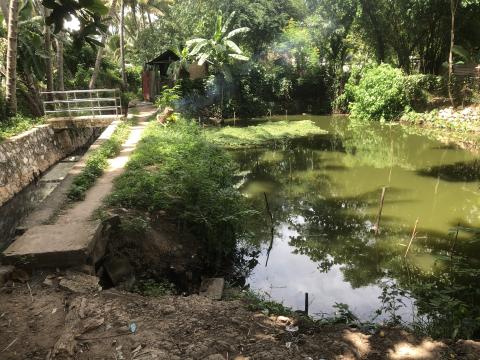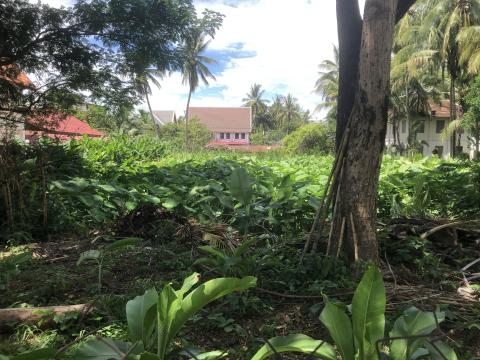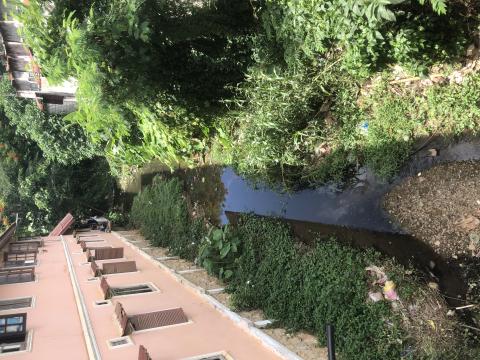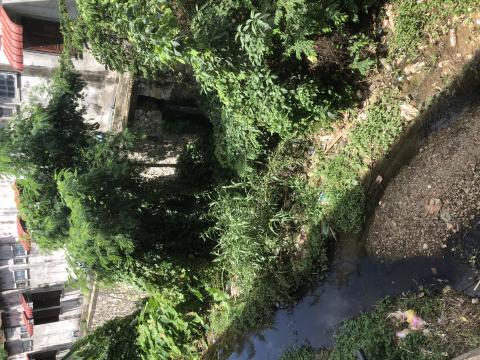Image
Project Number
Integrated Water Resource Management and Ecosystem-based Adaptation (EbA) in the Xe Bang Hieng River Basin and Luang Prabang City
Project Status
Status 2
Project Date
Project category
Category 2
Project Stage
Stage 2
Project Area of Work
Area of Work 2
Project Donor & Co-financing
Donor 2
Project Contact Details
For more information, please contact:
Phouphet Chittaphone
Database Management and Communication Officer IWRM-EbA Project
Email: [email protected]
Phouphet Chittaphone
Database Management and Communication Officer IWRM-EbA Project
Email: [email protected]
Share:





Important of Ecosystem-based Adaptation (EbA) in building resilience for Luang Prabang communities
Project Location
LuangPrabang City
Project Description
The challenges posed by climate change in the Xe Bang Hieng River Basin and urban areas like Luang Prabang city are significant, affecting both rural and urban communities. Floods and droughts damage livelihoods, ecosystems, and infrastructure, while deforestation and rapid urbanization exacerbate these vulnerabilities.
In the Xe Bang Hieng River Basin, seasonal flooding destroys agricultural lands, displaces communities, and erodes infrastructure, while prolonged droughts threaten water availability, ecosystems, and food security. Similarly, Luang Prabang city, a UNESCO World Heritage Site, is vulnerable to urban flooding, which can damage critical infrastructure, disrupt tourism, and endanger cultural heritage.
To tackle these challenges, UNDP, in partnership with the Government of Lao PDR and support from the Global Environment Facility (GEF), is implementing the Integrated Water Resource Management and Ecosystem-Based Adaptation (EbA) program. This initiative focuses on enhancing resilience to climate-induced hazards through ecosystem restoration, community-based adaptation strategies, and improved water management practices, aimed at strengthening the capacity of both rural and urban communities to withstand the impacts of climate change.
In the Xe Bang Hieng River Basin, seasonal flooding destroys agricultural lands, displaces communities, and erodes infrastructure, while prolonged droughts threaten water availability, ecosystems, and food security. Similarly, Luang Prabang city, a UNESCO World Heritage Site, is vulnerable to urban flooding, which can damage critical infrastructure, disrupt tourism, and endanger cultural heritage.
To tackle these challenges, UNDP, in partnership with the Government of Lao PDR and support from the Global Environment Facility (GEF), is implementing the Integrated Water Resource Management and Ecosystem-Based Adaptation (EbA) program. This initiative focuses on enhancing resilience to climate-induced hazards through ecosystem restoration, community-based adaptation strategies, and improved water management practices, aimed at strengthening the capacity of both rural and urban communities to withstand the impacts of climate change.
Project Outcomes & Impacts
- Improved Climate Resilience Communities in Luang Prabang are better equipped to withstand natural hazards like floods, landslides, and droughts through ecosystem-based solutions.
- Restored and Sustained ecosystems such as forests, wetlands, and rivers are restored and maintained to provide essential services like water regulation, erosion control, and soil conservation.
- Empowered Communities and Livelihoods Local communities gain awareness and adopt sustainable practices, with alternative livelihood options introduced to enhance economic resilience.
- Preservation of Cultural and Natural Heritage Ecosystem-based approaches protect vital cultural heritage sites while addressing climate risks and promoting sustainable tourism.
- Strengthened Institutional Capacity - Local authorities and institutions integrate EbA strategies into policies and development plans, ensuring long-term sustainable water and land management practices. 🌿
- Restored and Sustained ecosystems such as forests, wetlands, and rivers are restored and maintained to provide essential services like water regulation, erosion control, and soil conservation.
- Empowered Communities and Livelihoods Local communities gain awareness and adopt sustainable practices, with alternative livelihood options introduced to enhance economic resilience.
- Preservation of Cultural and Natural Heritage Ecosystem-based approaches protect vital cultural heritage sites while addressing climate risks and promoting sustainable tourism.
- Strengthened Institutional Capacity - Local authorities and institutions integrate EbA strategies into policies and development plans, ensuring long-term sustainable water and land management practices. 🌿
Project Media & Reports
Image
Image
Image
Image
Image
